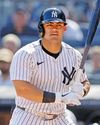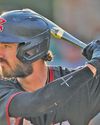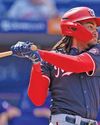
MINOR LEAGUES, MAJOR CHANGES
On the second Wednesday in December, Major League Baseball took yet another step toward completing the most dramatic change in the minor leagues in at least half a century.
On Dec. 9, MLB invited 120 minor league teams to join its Professional Development Leagues. While there had been talks between negotiating teams from Minor League Baseball and MLB for many months, this pivotal moment, which will shape the structure of the minor leagues, was a unilateral decision. MiLB had no significant input into which teams were invited to be affiliates and which ones were not.
That appears to be by design. After months of talks, MLB made it clear it is setting up its own system. Based on feedback from minor league clubs, MLB has been willing to tweak aspects of the rules and guidelines it will use, but the structure has been set up by MLB and MLB alone.
As 2020 ended, there was no certainty that the 120 teams MLB invited would be the same 120 that takes the field in 2021. To join MLB’s system, minor league teams will have to agree to sign a 10-year Professional Development License. They will also have to waive any right to sue MLB.
It’s possible some teams will balk, either by simply refusing to sign individually or by banding together as a group to attempt to get some aspects of the PDLs altered.
This story is from the January 2021 edition of Baseball America.
Start your 7-day Magzter GOLD free trial to access thousands of curated premium stories, and 9,000+ magazines and newspapers.
Already a subscriber ? Sign In
This story is from the January 2021 edition of Baseball America.
Start your 7-day Magzter GOLD free trial to access thousands of curated premium stories, and 9,000+ magazines and newspapers.
Already a subscriber? Sign In

THE SERVICE TIME CONUNDRUM
MLB’s byzantine service time rules cloud rookie status and now PPI eligibility

LUIS TIANT WAS MLB'S MOST SUCCESSFUL CUBAN PITCHER
On a scouting trip to Cuba in 1957, Bobby Avila discovered 16-year-old righthander Luis Tiant on the island's Juvenile League all-star team.

ORGANIZATION REPORT
Outfielder Heston Kjerstad's career has been unique, to say the least.

TOP 10 NL EAST
From the moment Thomas White stepped on a high school mound, he was viewed as the top lefthander available in the 2023 draft.

PREPARATION PAYS OFF
lowa politician J.D. Scholten makes a surprising return to pro ball at age 44

MAKING THE GRADE
Assessing the future value of graduated National League prospects

TOP 10 NL WEST
Even in high school, Bryce Eldridge could hit the ball a mile. The 6-foot-7 righthander could also touch 96 mph off the mound.

Wood Has Towering Upside- Nationals rookie James Wood also stands 6-foot-7 and also has game-changing power.
Aaron Judge and Oneil Cruz are 6-foot7 sluggers who stand out for their power in this year’s MLB Best Tools voting. Wood spent half of this season with Triple-A Rochester before making his MLB debut on July 1. While he was in the International League, he captured managers’ attention. Wood unanimously won Best Power Prospect and also claimed Most Exciting Player in a survey of league skippers. Wood hit .353/.463/.595 with 10 home runs in 52 games for Rochester. His .242 isolated slugging was the best for a player 21 or younger at Triple-A this season.

ROAD BLOCK?
Scholarship expansion puts mid-majors at a major disadvantage on the road to Omaha

ROYALS REVIVAL
A revamped and rejuvenated farm system has Kansas City ready to rebound